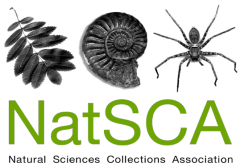Labours of excavation: Reflections on “Unearthing the collection”
This article explores how theoretical framings of heritage as process can be employed to contextualise natural science collections as complex, dynamic and contested assemblages of objects, places, practices and people. This research is a result of reflections on a workshop the authors organized, ''Unearthing the Collection'', with the aims of exploring and engaging with empirical, theoretical, and practical considerations of anti-colonial approaches when working with mineralogical collections. Using mineralogical collections as a model, the article draws on scholarships of critical heritage studies, science communication, and decolonial curatorial interventions to interrogate natural science collections' past, present, and future lives. Leveraging insights from the workshop, this article expands on labour as a key theme and a critically neglected social dimension of natural science collections. We build on this and frame labour as a tactic and tool for strategic intervention through museum activism or curatorial approaches. We define three different labour-centric
perspectives that serve as lenses for constructing spatiotemporal life-histories of collections and specimens (from points of extraction to acquisition and maintenance) and for implementing anti-colonial praxis. This article concludes with a reflection on the limitations of labour as a lens and other tactics that can be explored to unearth collections.
**Note that this article is open-access. Other articles in Volume 12 are available to members only for 1 year after publication**
